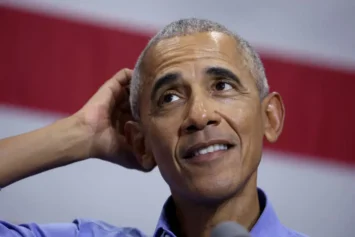PRINCETON, NJ — U.S. veterans, about 13% of the adult population and consisting mostly of older men, support Mitt Romney over Barack Obama for president by 58% to 34%, while non-veterans give Obama a four-percentage-point edge.
These data, from an analysis of Gallup Daily tracking interviews conducted April 11-May 24, show that 24% of all adult men are veterans, compared with 2% of adult women.
Obama and Romney are tied overall at 46% apiece among all registered voters in this sample. Men give Romney an eight-point edge, while women opt for Obama over Romney by seven points. It turns out that the male skew for Romney is driven almost entirely by veterans. Romney leads by one point among non-veteran men, contrasted with the 28-point edge Romney receives among male veterans.
The small percentage of female veterans in the U.S., in contrast to their male counterparts, do not differ significantly in their presidential vote choice from the vast majority of women who are not veterans.
The proportion of U.S. men who are armed forces veterans rises dramatically among those who are 60 and older. The military draft was in force in the U.S. from shortly before the U.S. entry into World War II until the early 1970s. A majority of men now 70 to 89 served in the military, including almost three-quarters of those aged 80 to 89. Less than a fifth of men younger than 50 have served in the military. There is little variation in military service among women across these age groups.
Age makes little substantive difference in the vote preferences of male veterans. Those younger than 50 are roughly as likely to support Romney as are those 60 and older. Male veterans aged 50 to 59 are slightly less skewed toward Romney, but still support him by a 15-point margin.
Bottom Line
Veterans in the U.S. today are mostly male and two-thirds are aged 50 or older. In a population that is currently evenly split in its preferences for Barack Obama or Mitt Romney for president, veterans stand out for their 24-point preference for Romney. About a fourth of men are veterans, and it is their strong skew toward Romney that essentially creates the GOP candidate’s leading position among men today. Among non-veteran men, Obama and Romney are essentially tied.
Why veterans are so strong in their preference for the Republican presidential candidate is not clear. Previous Gallup analysis has suggested that two processes may be at work. Men who serve in the military may become socialized into a more conservative orientation to politics as a result of their service. Additionally, men who in the last decades have chosen to enlist in the military may have a more Republican orientation to begin with.
Veterans’ strong preference for Romney in this election occurs even though Romney himself is not a military veteran — though Obama shares this non-veteran status. This will be the first election since World War II in which neither major-party candidate is a veteran.
Barring unforeseen developments such as the re-institution of the military draft, the proportion of the male population in this country that will have served in the armed forces will decrease in the years ahead as the older population dominated by veterans dies off. These data suggest that Democrats could get an overall boost from this demographic phenomenon as these apparently reliable Republican voters become a smaller and smaller proportion of the population.
Source: Gallup.com


